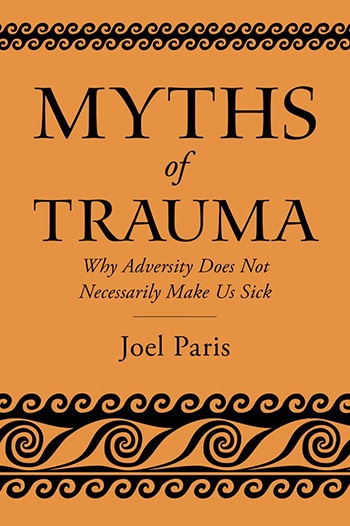Among people who experience some sort of trauma, what percentage do you think go on to develop post-traumatic stress disorder? A third? A Half? More? Actually, the answer is 10%. An overestimation of how common it is to develop PTSD after trauma is one of the misconceptions my guest thinks are leading to its overdiagnosis and an underestimation of human resilience. Dr. Joel Paris is a professor emeritus of psychiatry and the author of Myths of Trauma: Why Adversity Does Not Necessarily Make Us Sick. Today on the show, Joel explains what some of those myths of trauma are, including the idea that it's trauma itself which causes PTSD. Joel argues that PTSD is instead created when exposure to trauma meets an individual's susceptibility to it, and he explains what psychological, biological, and even social factors contribute to this susceptibility. We also get into how the methods used to prevent the triggering of trauma can backfire and how the treatment for PTSD will be ineffective if it only focuses on processing an adverse experience.
Among people who experience some sort of trauma, what percentage do you think go on to develop post-traumatic stress disorder? A third? A Half? More?
Actually, the answer is 10%. An overestimation of how common it is to develop PTSD after trauma is one of the misconceptions my guest thinks are leading to its overdiagnosis and an underestimation of human resilience.
Dr. Joel Paris is a professor emeritus of psychiatry and the author of Myths of Trauma: Why Adversity Does Not Necessarily Make Us Sick. Today on the show, Joel explains what some of those myths of trauma are, including the idea that it's trauma itself which causes PTSD. Joel argues that PTSD is instead created when exposure to trauma meets an individual's susceptibility to it, and he explains what psychological, biological, and even social factors contribute to this susceptibility. We also get into how the methods used to prevent the triggering of trauma can backfire and how the treatment for PTSD will be ineffective if it only focuses on processing an adverse experience.
